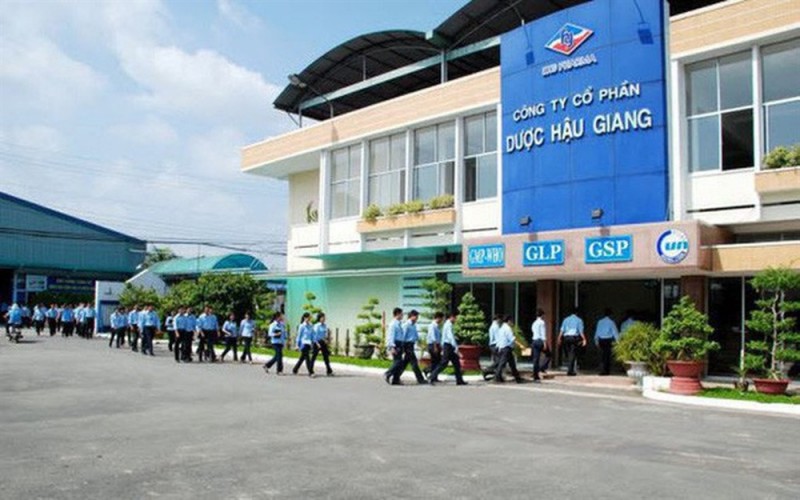Vietnam healthcare market, a big draw for investors
 |
| Later in the year, Hậu Giang Pharmaceutical Joint Stock Company (DHG) became a subsidiary of Japan’s Taisho Pharmaceutical Co Ltd after the latter acquired an additional 20.6 million shares in the former to increase its stake to 50.78 per cent. - Photo: Vietnam News |
The deal gave VOF a stake in the company, which owns a hospital each in Ho Chi Min, Đồng Tháp Province, Nha Trang City, and Đanang with a total 500 beds and more than 700 employees.
Also last year, South Korea’s Sun Medical Centre acquired Nha Khoa Mỹ and went down in history as the first buyer of a Vietnamese dental clinic.
Later in the year, Hậu Giang Pharmaceutical Joint Stock Company (DHG) became a subsidiary of Japan’s Taisho Pharmaceutical Co Ltd after the latter acquired an additional 20.6 million shares in the former to increase its stake to 50.78 per cent.
The Vietnamese healthcare market has been seeing foreign investors inject trillions of đồng in merger and acquisition (M&A) deals.
In 2018, Hoàn Mỹ Medical Corporation, backed by Singapore firm Richard Chandler, bought out Hạnh Phúc Hospital and Hữu Nghị General Clinic. The deals helped Hoàn Mỹ expand its nationwide network and improve its maternity services, and benefit from the Singaporean firm’s large customer database.
Polish company Adamed Group bought a 70 per cent stake in Đạt Vi Phú Pharmaceutical Joint Stock Company (Davipharm) for $50 million.
Not only foreign investors but also domestic ones are keen on entering the medical sector.
For instance, Infrastructure Investment and Transportation Construction Investment Joint Stock Company (Intracom) has set up the Phương Đông General Hospital.
Chiong Woan Shin, general counsellor at the Singapore consulate in HCM City, was quoted by Đầu Tư (Investment) newspaper as saying Singaporean investors are extremely interested in the Vietnamese healthcare market.
Living standards in the country have shown a marked improvement in recent years and so there is growing demand for high-quality medical services, she said. The fact that many Vietnamese opt to go abroad for medical treatment has caused Singaporean businesses to take interest in the country’s healthcare sector, she said.
Speaking about the investment in Tâm Trí Medical Joint Stock Company, VinaCapital’s managing director and chief investment officer, Andy Ho, said Vietnamese spend an estimated $2 billion a year for medical treatment overseas, which is a good reason for investing to develop the quality of healthcare services in the country.
Analysts said the healthcare sector is becoming more and more attractive to both domestic and foreign investors since demand for quality medical care is increasing. Meanwhile, the Government has outlined plans to pull out its investment in many pharmaceutical companies.
Business Monitor International reported that spending on healthcare in 2017 was estimated at $16.1 billion, or 7.5 per cent of the country's GDP. It forecast the spending to grow to $22.7 billion in 2021.
To explain this rapid growth, experts pointed to the fact that Vietnam is among the countries with the fastest growing middle class, which always seeks quality healthcare and education services.
A study by global measurement company Nielsen in the second quarter of 2019 confirmed this, saying health had become the top concern among Vietnamese.
That health had gone past job security to become the top concern was something of a surprise but largely predictable, Louise Hawley, managing director of Nielsen Vietnam, said.
She wrote in the Vietnam Economics Times: “Vietnamese consumers care about their health more than ever.
“Pollution in the air and in the environment are hot topics that are increasingly top of mind for people. With the current situation relating to pollution and increased consumer awareness, health is expected to continue to be a top concern in the third quarter.”
Eng Aik Meng, chairman of the Singapore-Vietnam Cancer Centre, owned and managed by Vietnam Integrated Medical Services, said there is a big opportunity for private healthcare providers in Vietnam.
He said the outlook for foreign investors in the healthcare sector is good since the country’s population is ageing quickly. Some 10 per cent of the population was aged 60 or above in 2017, and in 15-20 years elderly people would account for a third, he said.
Besides, the rapid urbanisation is stimulating demand for quality healthcare and overcrowding is expected to intensify in public hospitals, resulting in long wait times and a shortage of beds, he said.
In addition to the increasing local demand for quality healthcare, the medical sector is also poised for strong growth due to medical tourism. For instance, the cost of dental services in the country is half that in developed countries though the quality is comparable.
All these advantages are the evident cause for the sharp increase in both domestic and foreign investment in the healthcare sector both directly and indirectly through M&A deals in recent years.
The Nielsen report stated: “The demand for healthcare and safety has been increasing in line with people’s awareness of health problems. Thus, the call to multi-national businesses to provide health-related services is critical considering the need for long-term investment.”
A report on private equity in Vietnam by Grant Thornton showed that healthcare and pharmaceuticals ranked third in terms of industry attractiveness for investors, 38 per cent of whom described it as “very attractive”.
Deputy Minister of Health Nguyễn Trường Sơn said many international organisations and Vietnamese private businesses want to invest in the country’s healthcare sector through public-private partnerships.
“The health ministry completely supports their plans, and is ready to co-operate with foreign and domestic businesses to help them realise their investment projects.”
